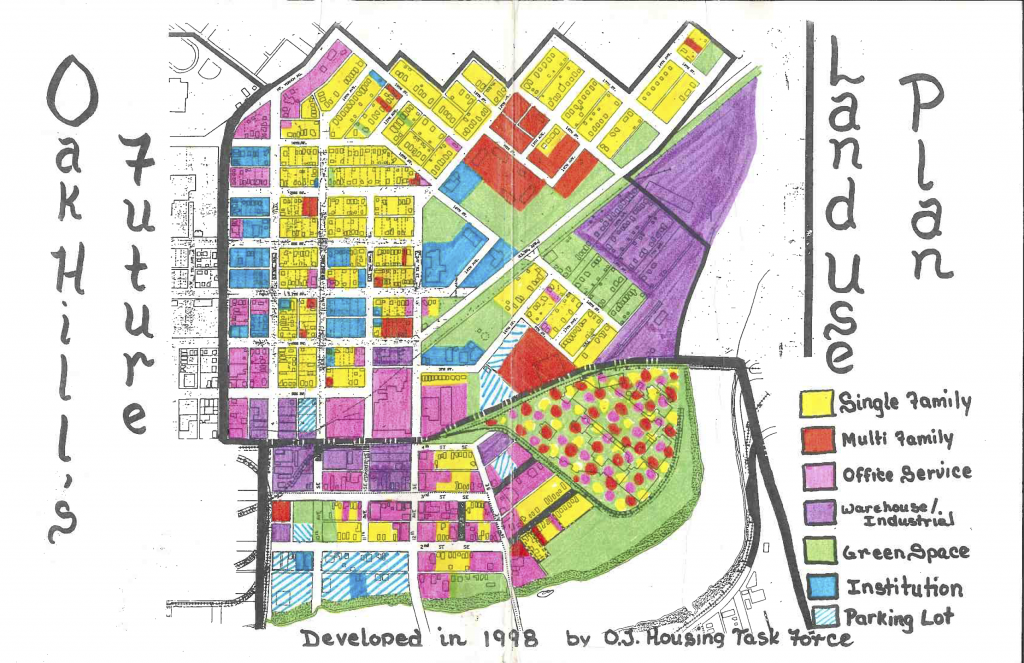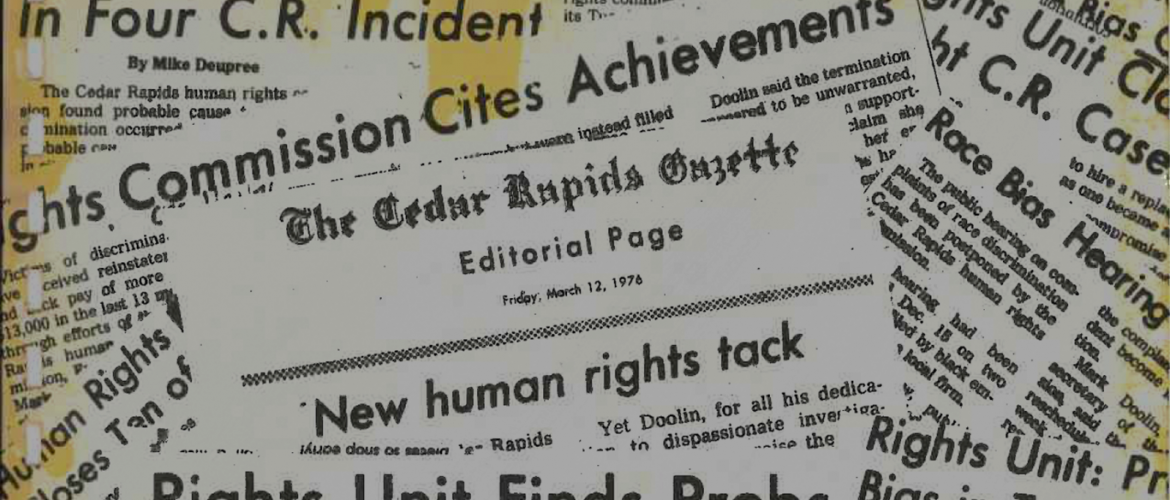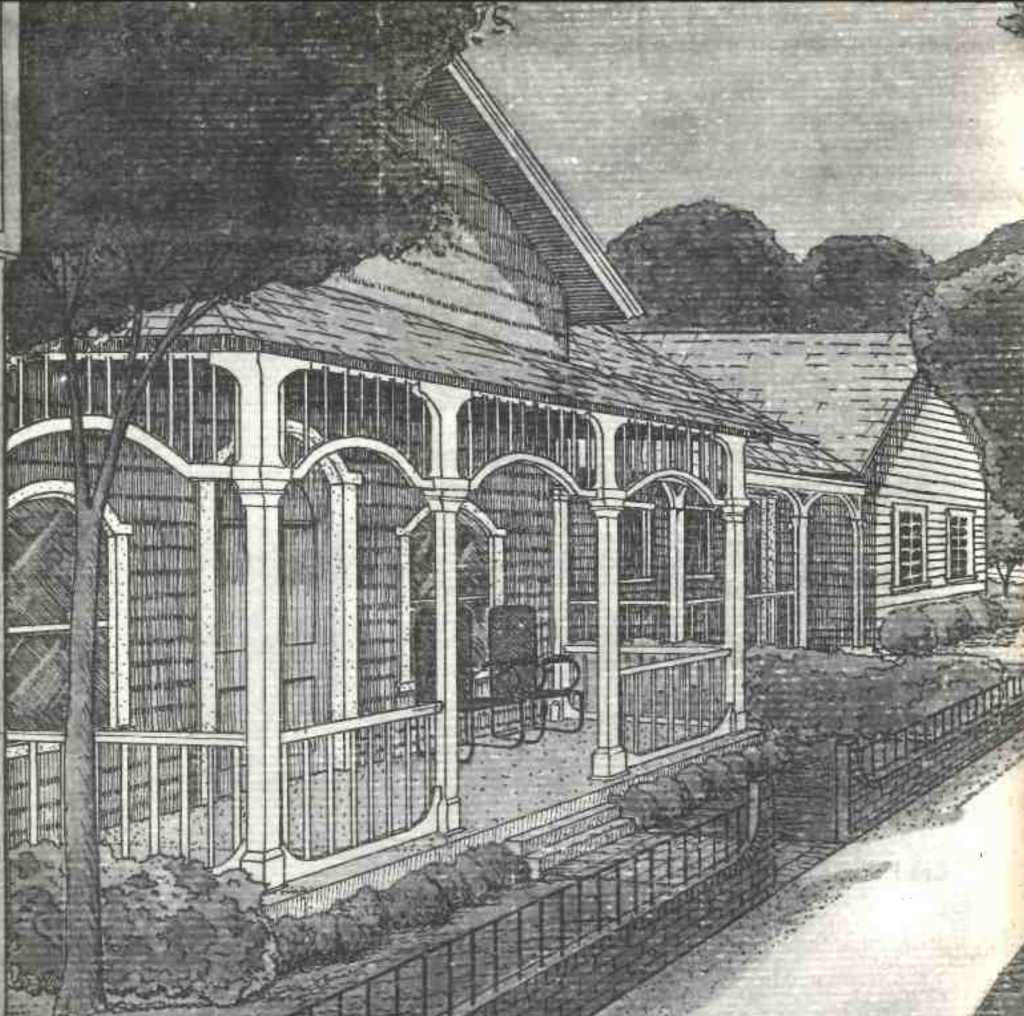While working on developing affordable housing for low-income families, Luther Trent turned his attention to his own neighborhood, the Oak Hill area of Cedar Rapids. Oak Hill was a largely African American community starting in the 1940s, but into the 1970s, the neighborhood had fallen into disrepair–so much so that a local ordinance in Cedar Rapids ruled that any houses that were vacant and boarded up were ‘nuisances’ to the city, and something had to be done about them. To create solutions, Trent founded the Oak Hill Citizens Committee to work together with the city of Cedar Rapids to renovate and revitalize the neighborhood.

A map created by the Oak Hill Citizens Committee marking the various areas of the neighborhood and their designation.
Early objectives of the Oak Hill Citizens Committee were to work with landlords and tenants to encourage communication and get landlords on site seeing the properties that tenants were paying to rent. Many homes needed repairs on water heaters and household heating systems as well as plumbing and window repair. Many tenants were paying rent without being aware of who their landlords were and many landlords were unaware of problems within the homes. Trent got involved in facilitating conversations between the city and landlords and between the landlords and tenants.
In 1980, when Iowa passed the Urban Revitalization Area act, Luther Trent and the Oak Hill Citizens Committee got together to petition Iowa State government to make the Oak Hill neighborhood of Cedar Rapids eligible to receive funds as part of the act. The Urban Revitalization act would distribute funds to make housing affordable and renovate parts of the neighborhood, enabling families to stay and live in the selected areas of Iowa.
At this time, Trent also took on a variety of other issues in the community. He challenged discrimination against the neighborhood from the Cedar Rapids police chief and worked with the local Cargill plant on rezoning their building and eliminating the pollution they created, among other things.

A flyer advertising Oak Hill/Jackson Neighborhood Clean-Up; April 19th, 1996. Events like this were meant to help motivate feelings of community pride and to get everyone working together.
As part of the publicity campaign to attract people to come and live in Oak Hill, various mediums were explored. A song was written for radio and tv, and posters, bumper stickers, and t-shirts were distributed. There was even a special “Oak Hill Day” with a variety of attractions and a cook-out. Oak Hill community revitalization continued through the 1980’s into the 90’s with more community development and recreational work happening as the neighborhood’s homes and buildings were restored and people moved in. To help develop relationships in the neighborhood and motivate people to be better tenants, landlords, and neighbors, Luther Trent and the Oak Hill Citizens Committee held workshops and distributed pamphlets. One of these pamphlets is shown below.


